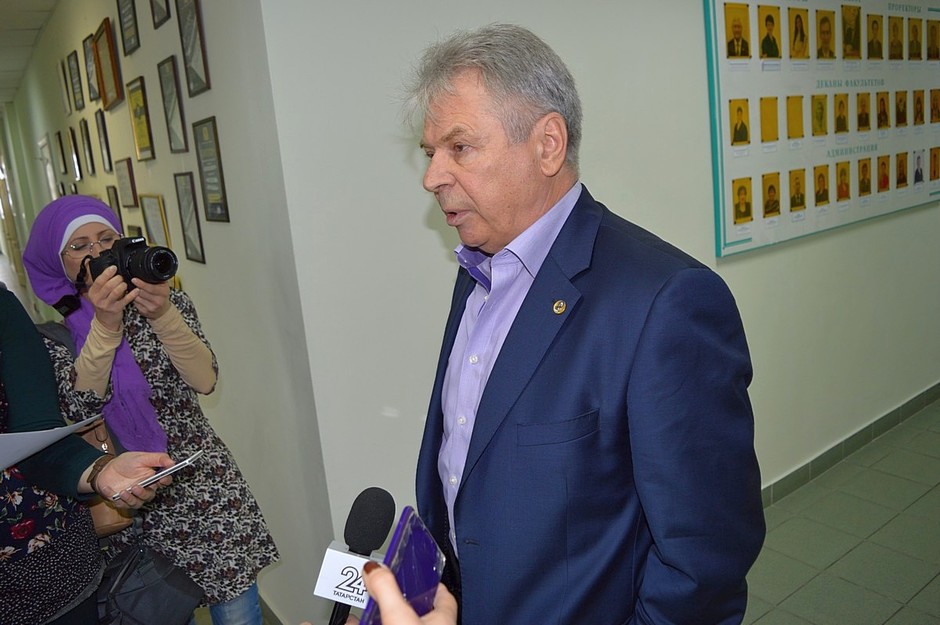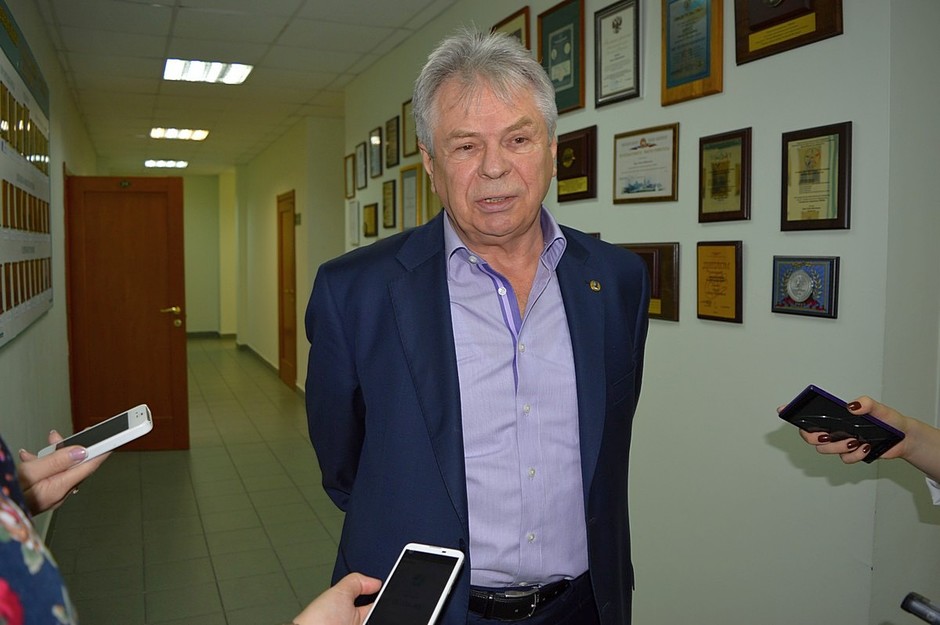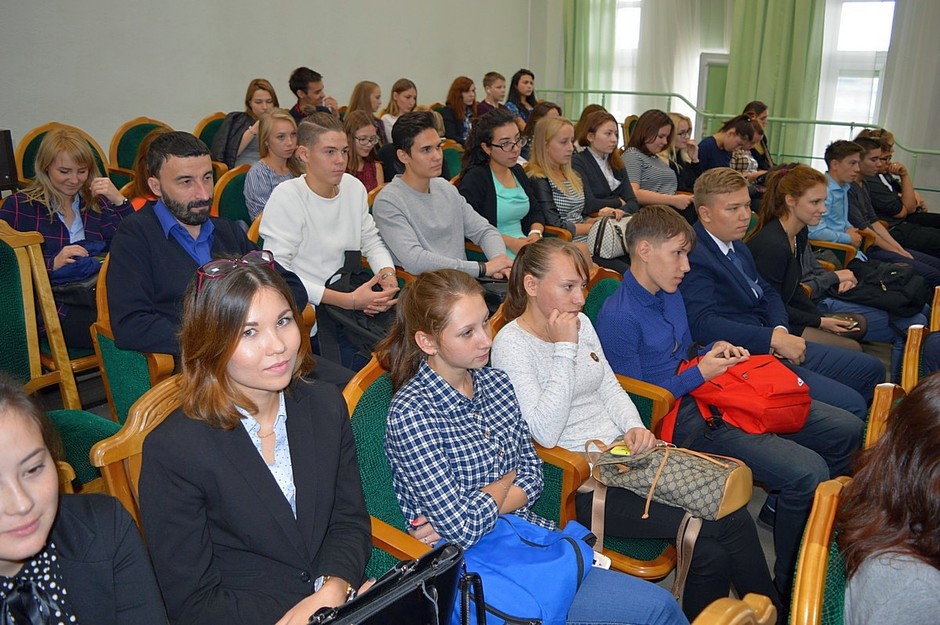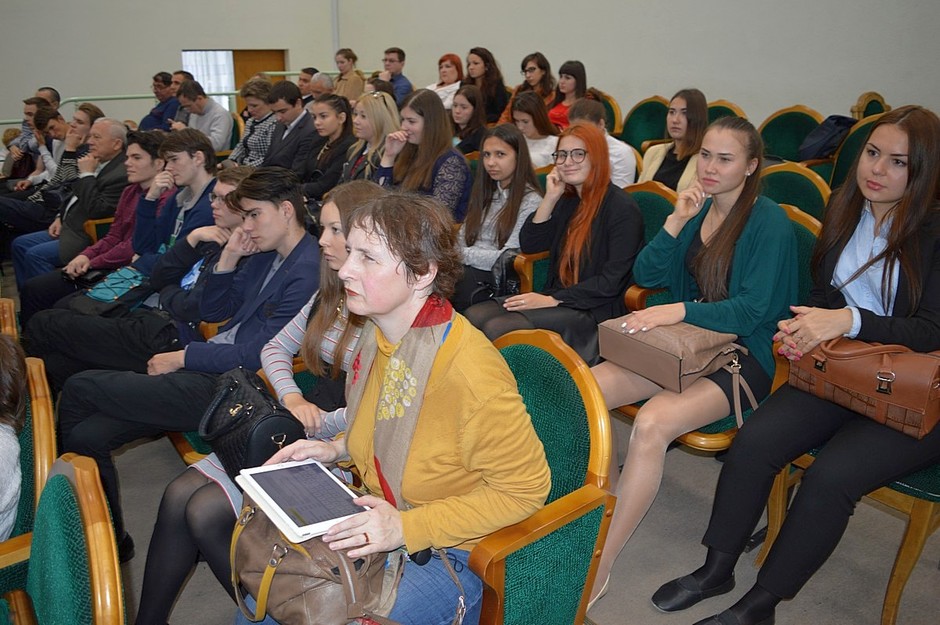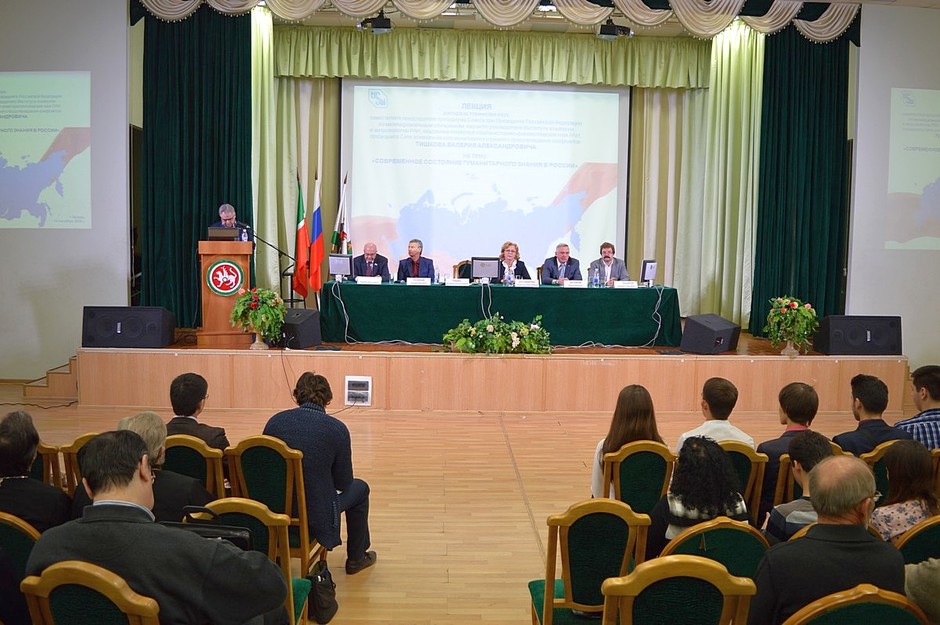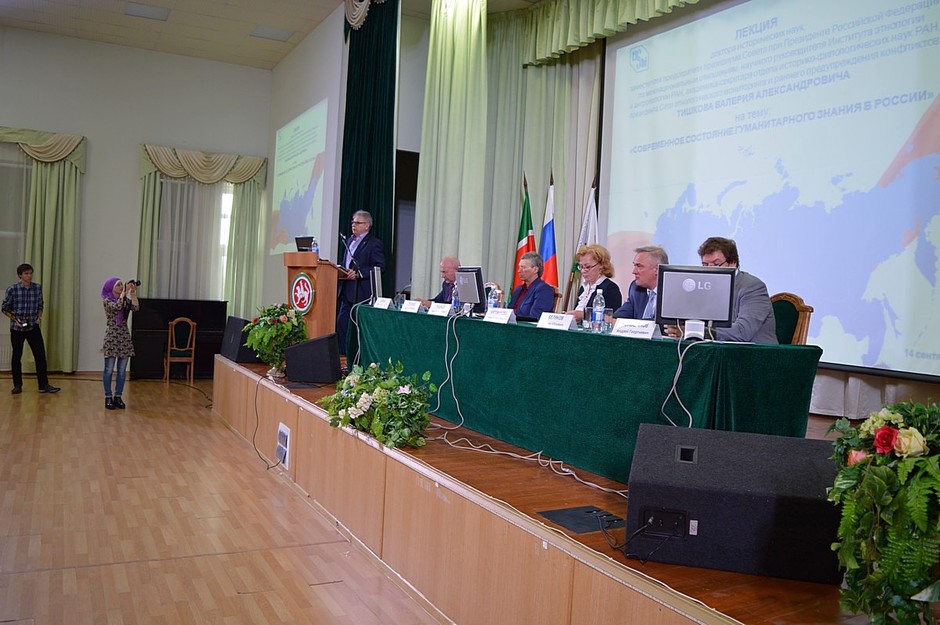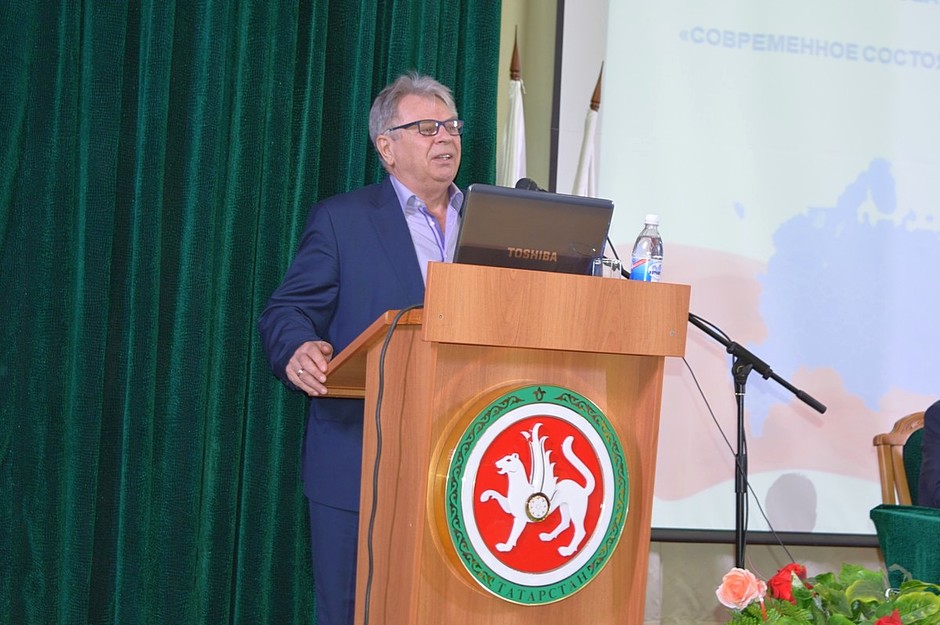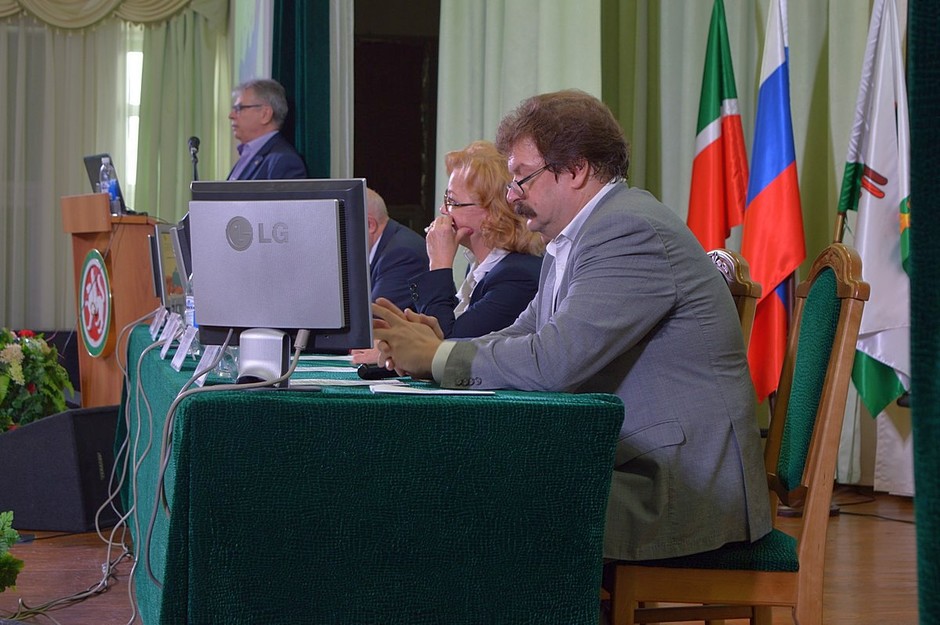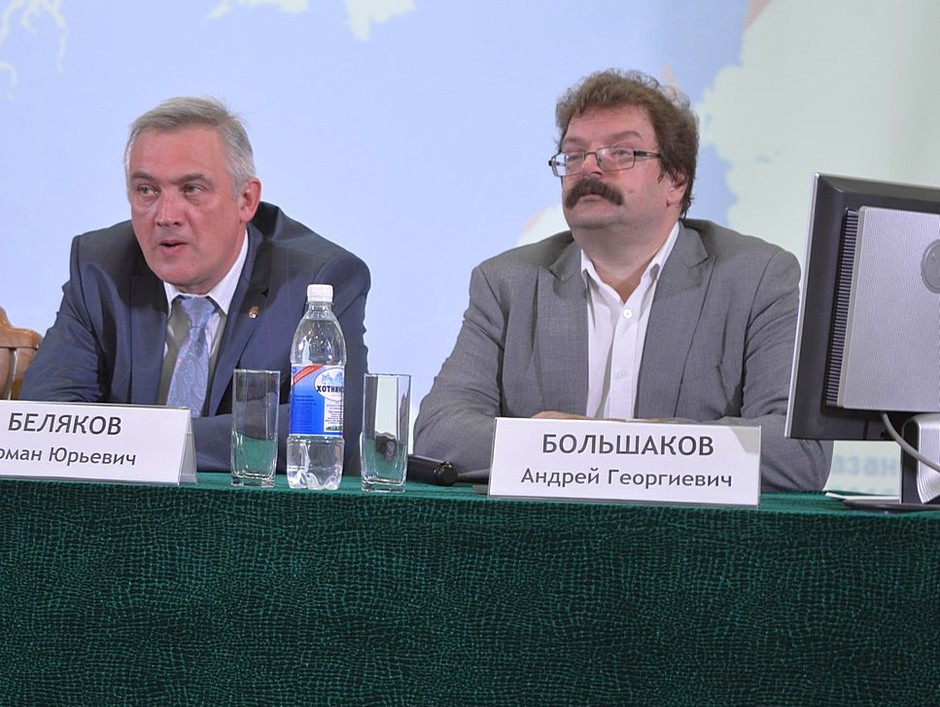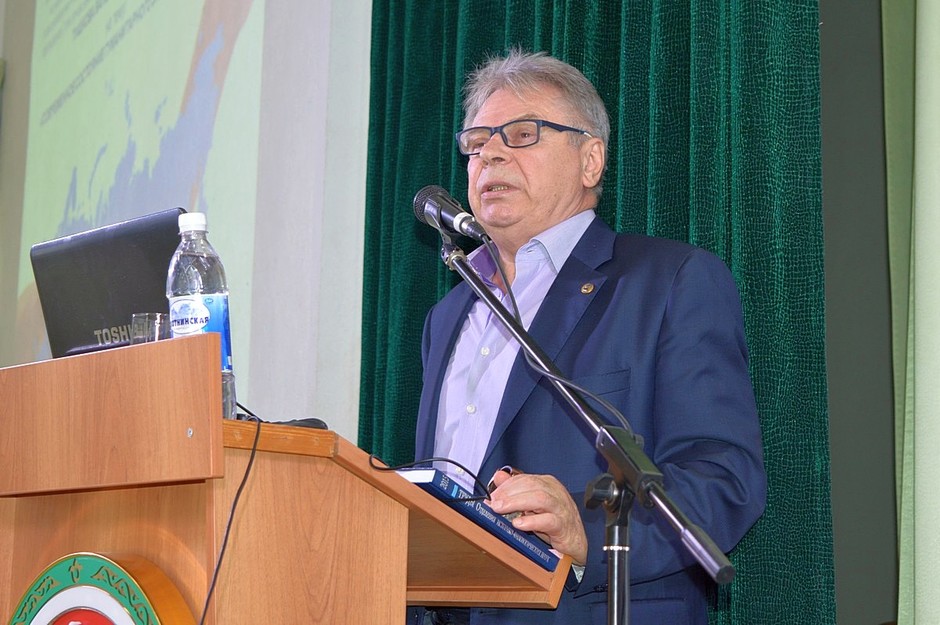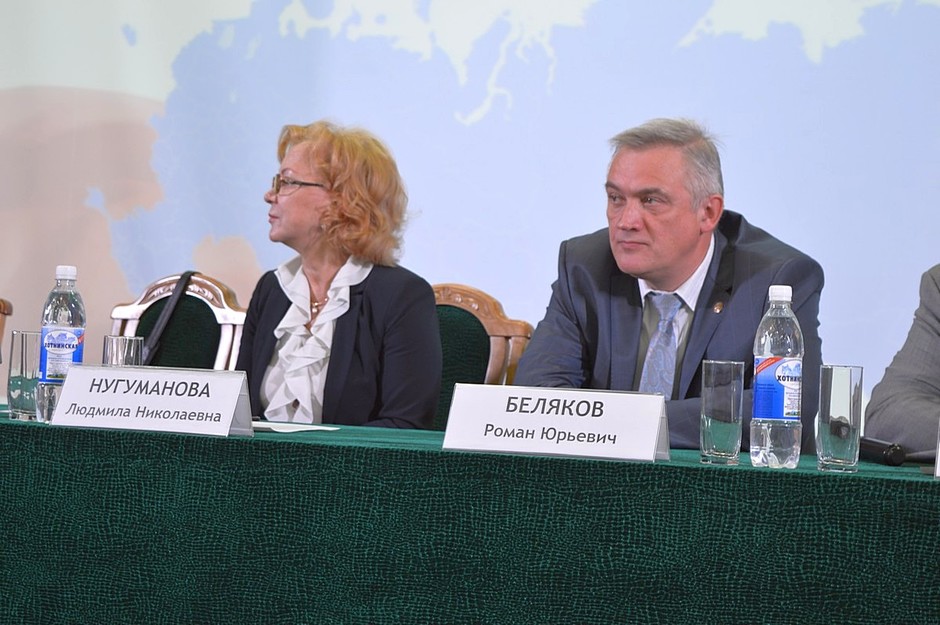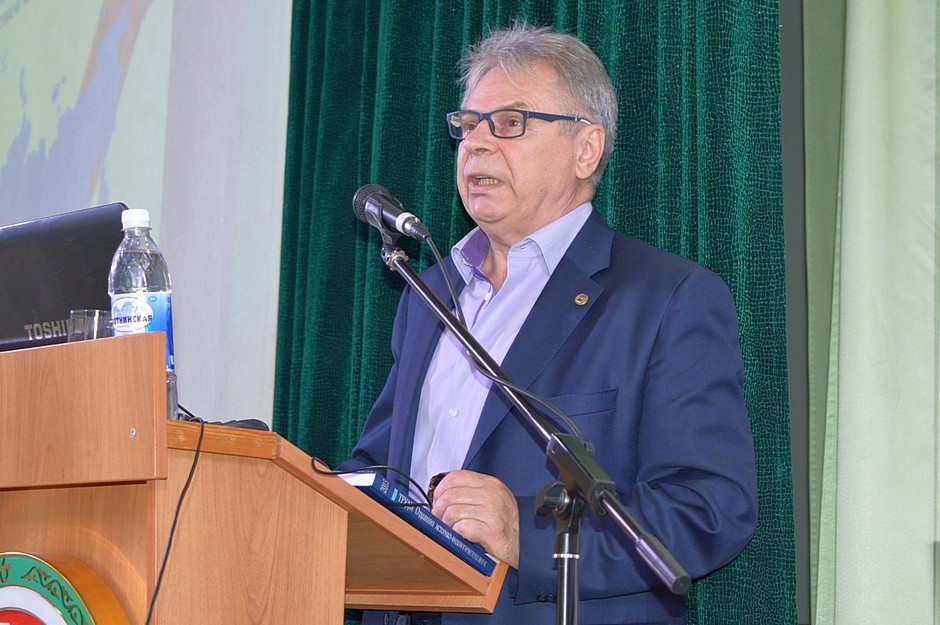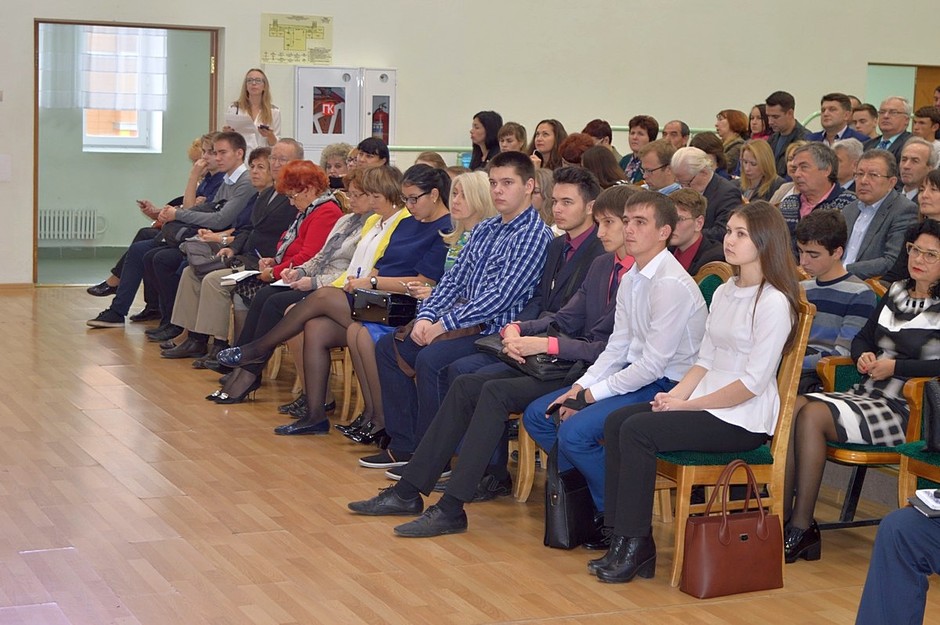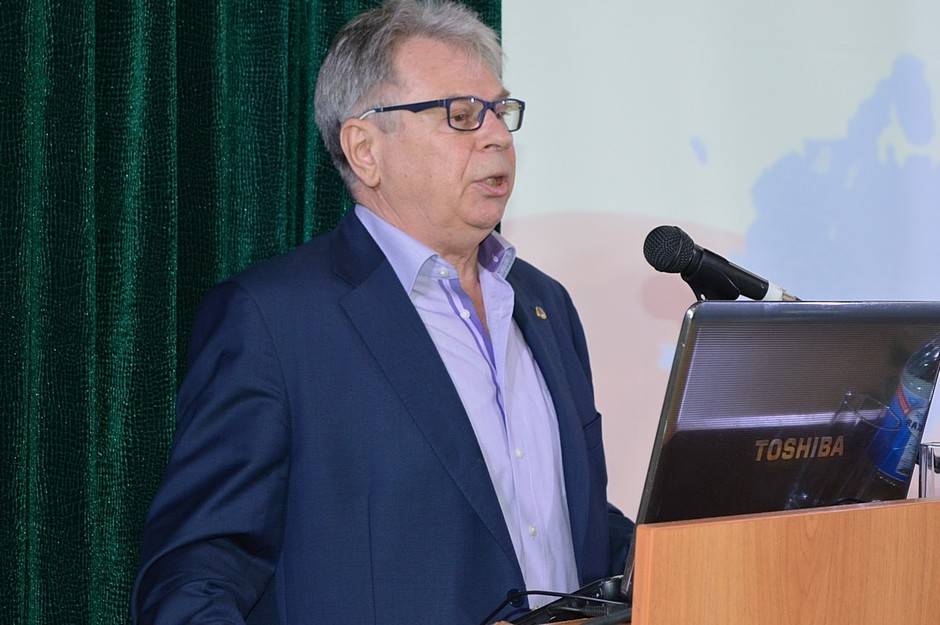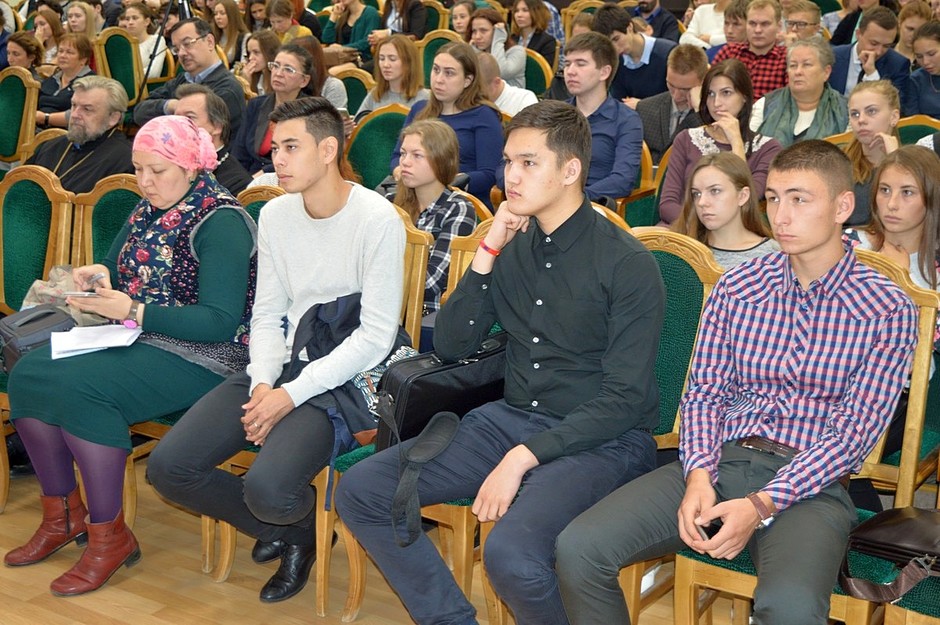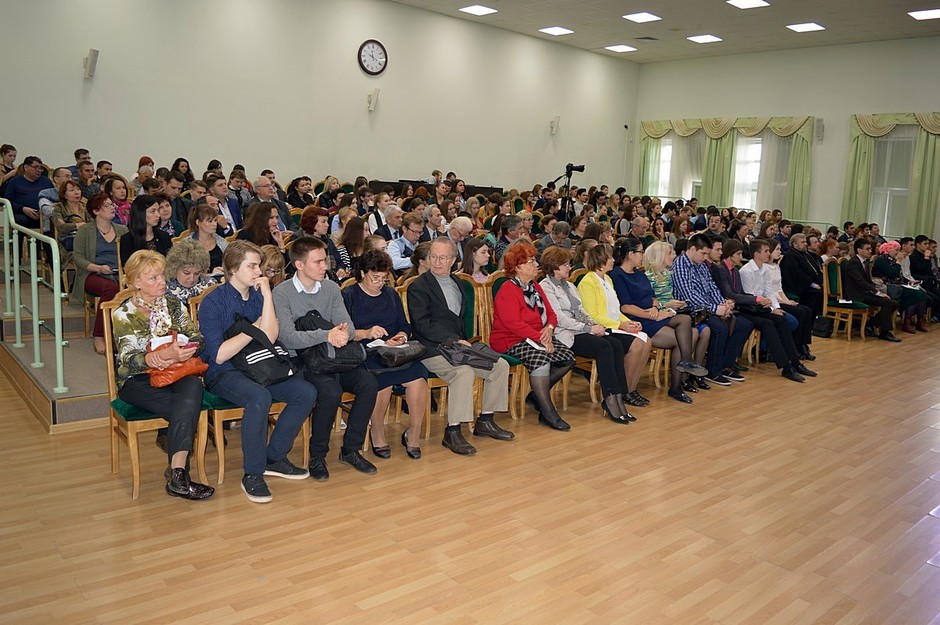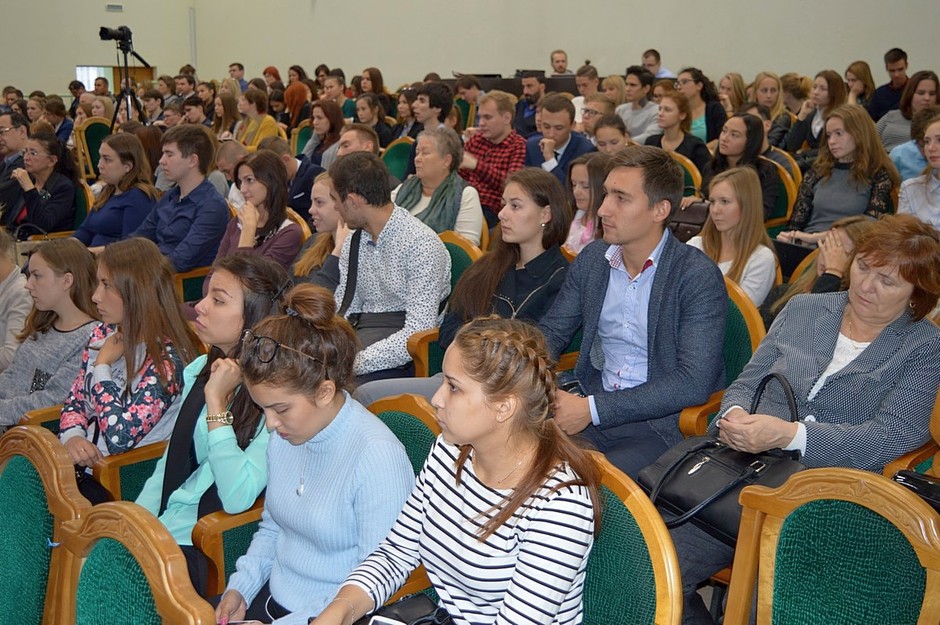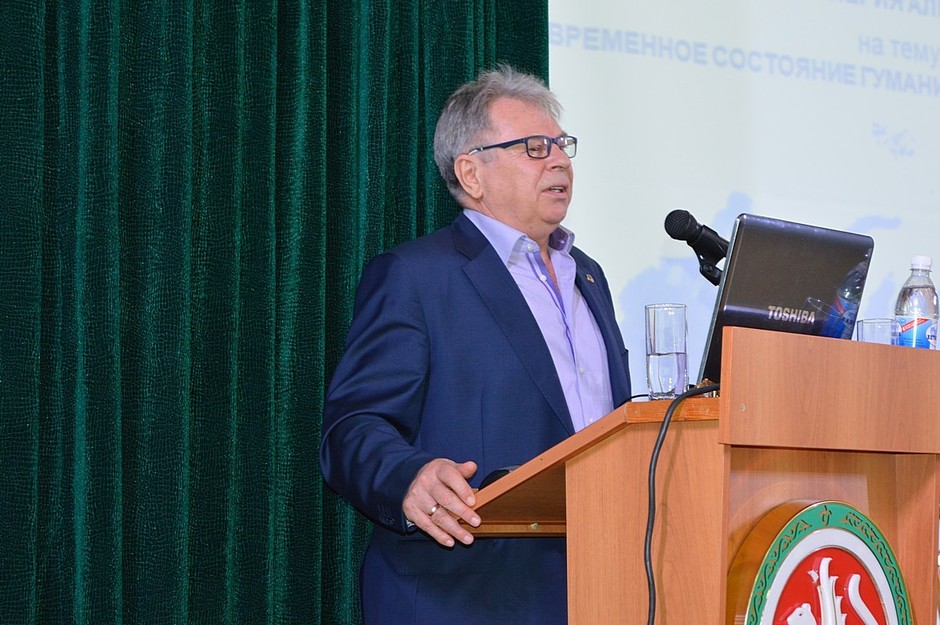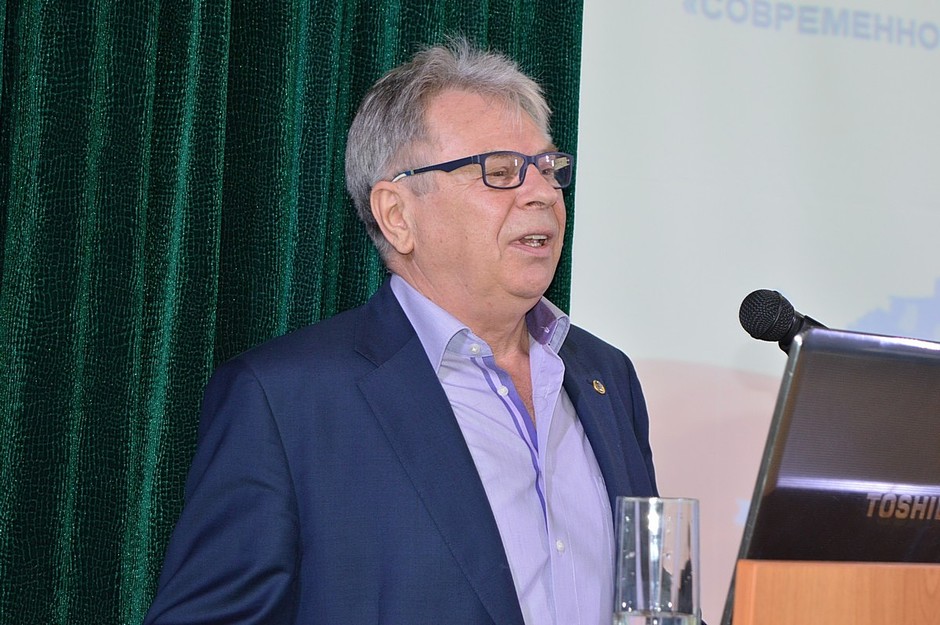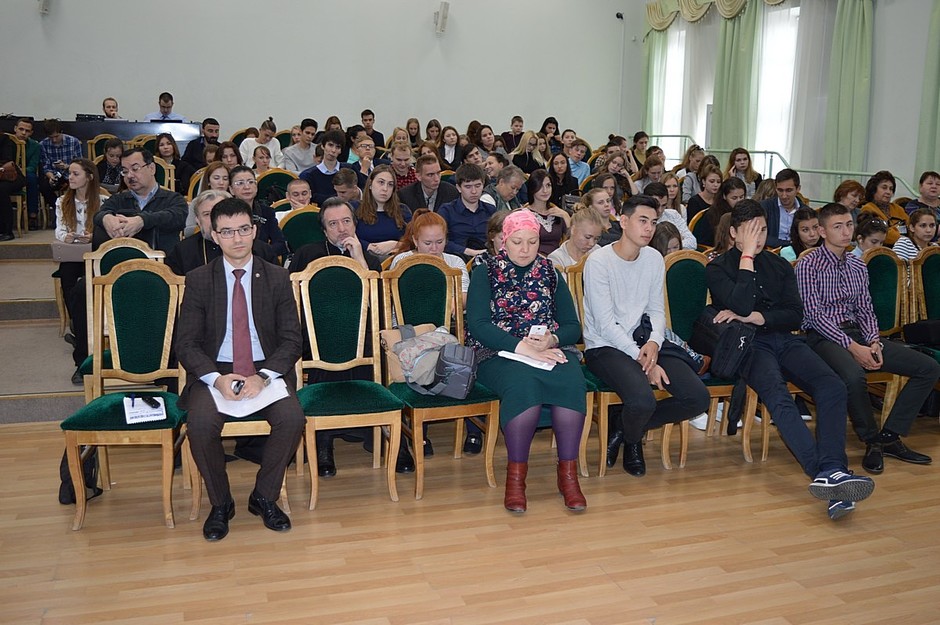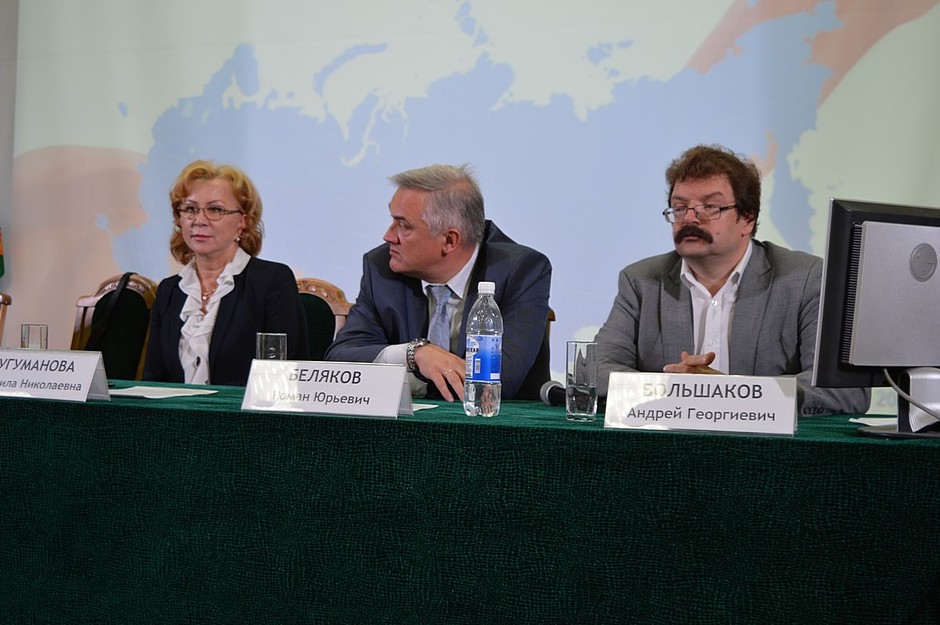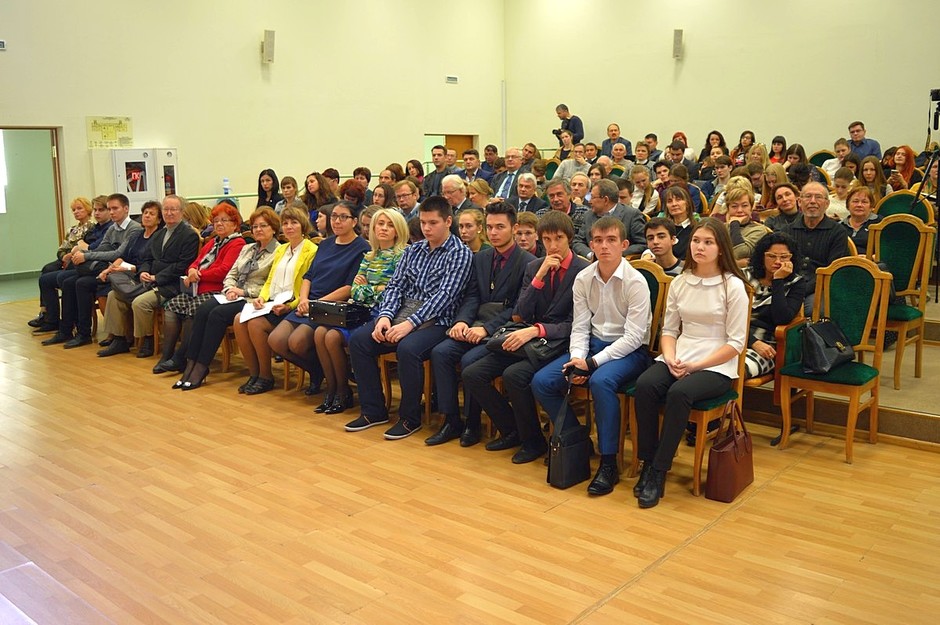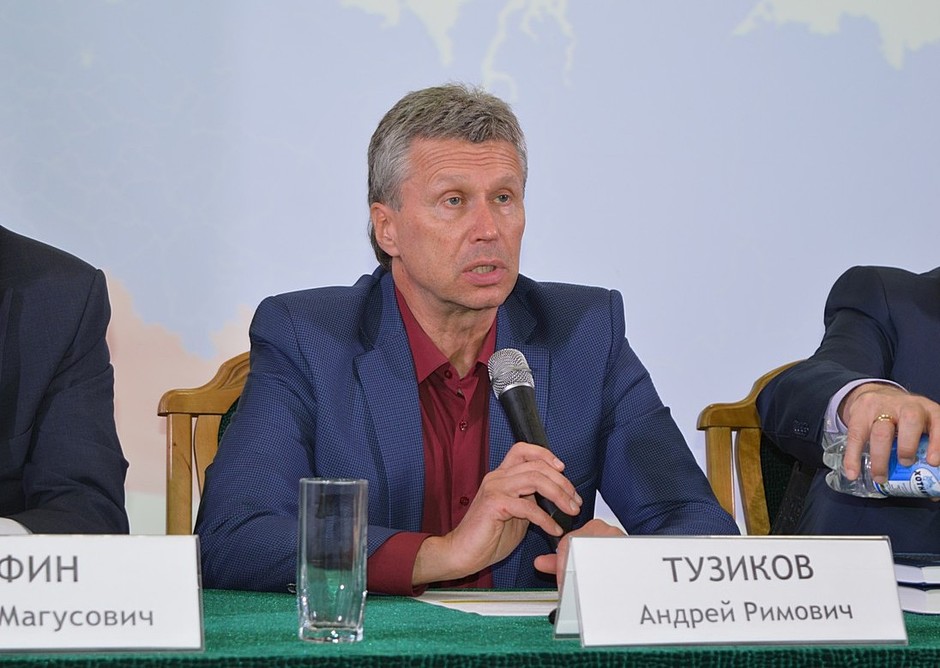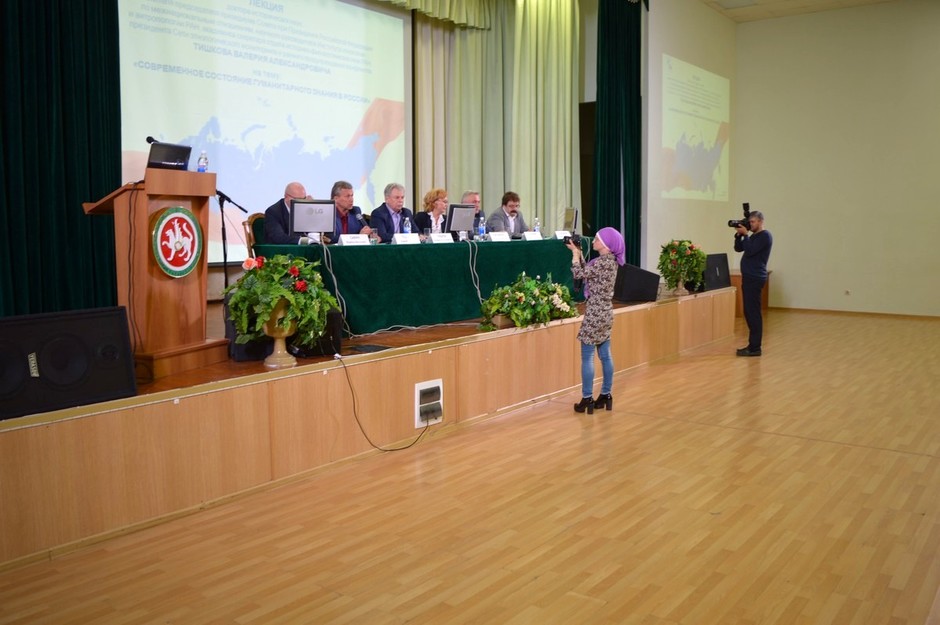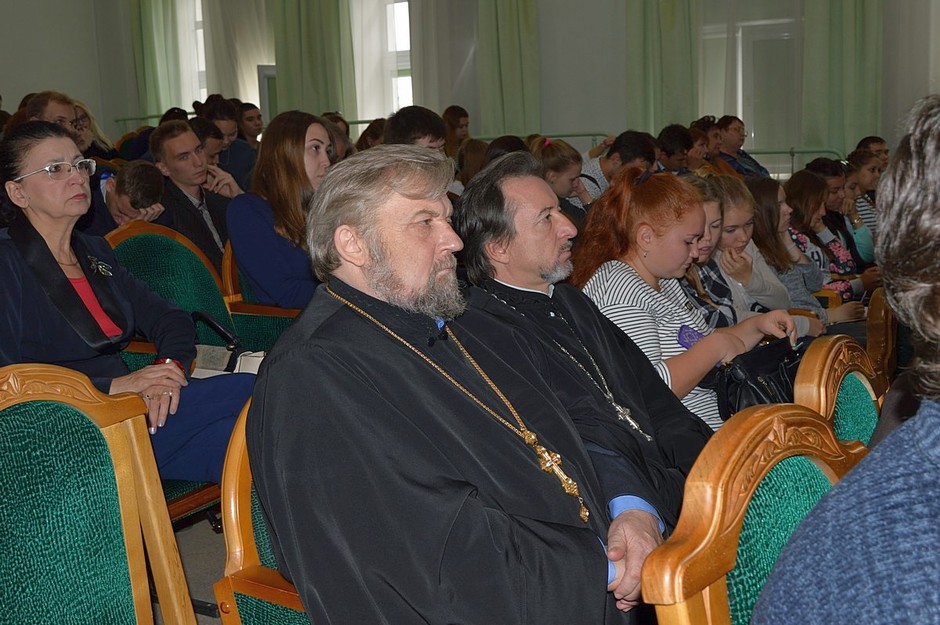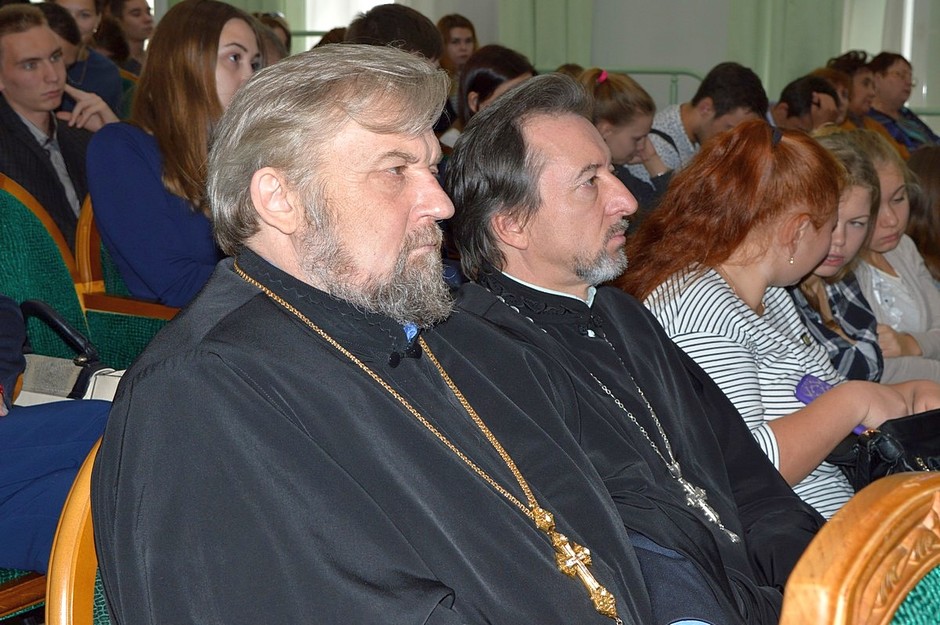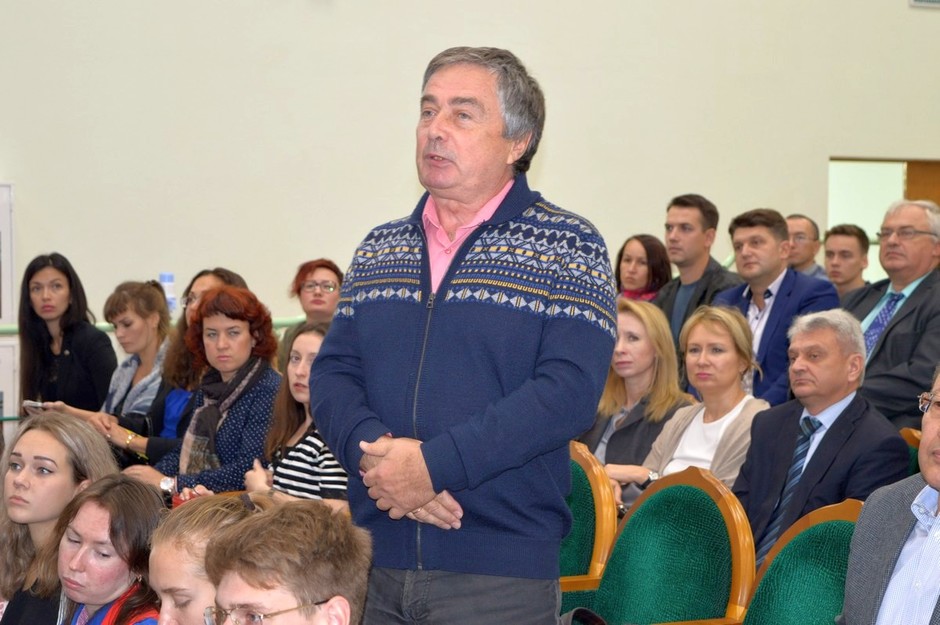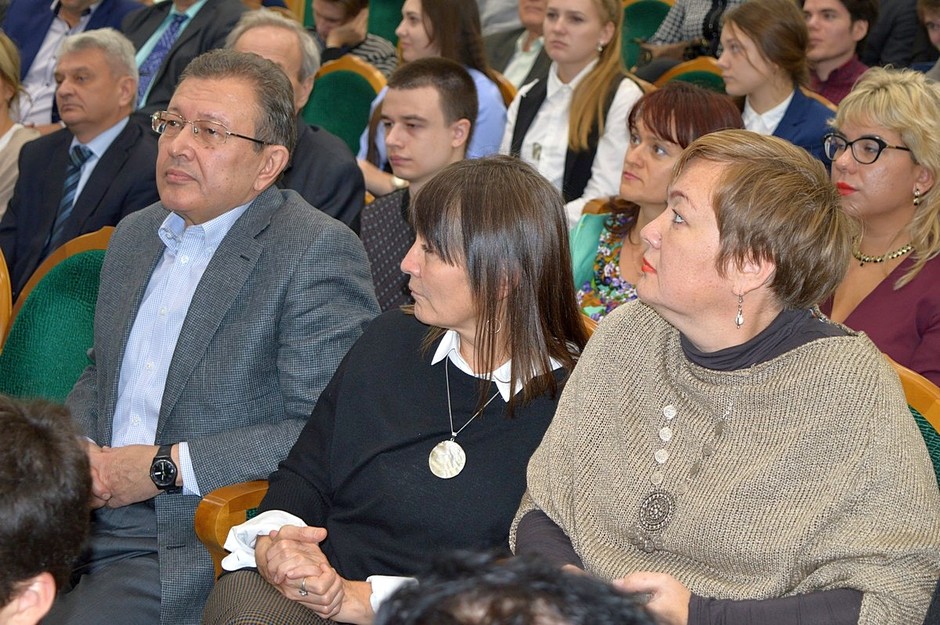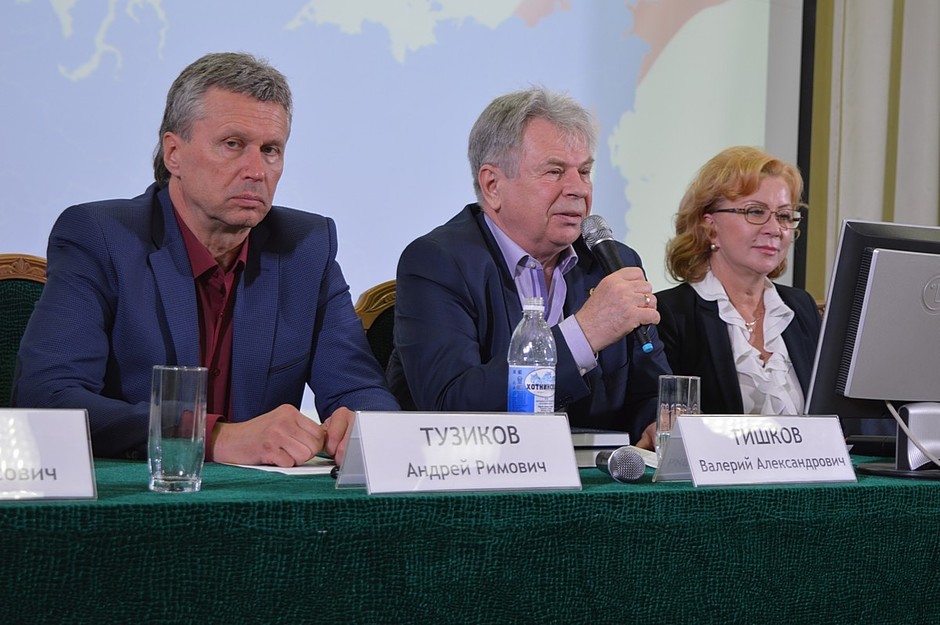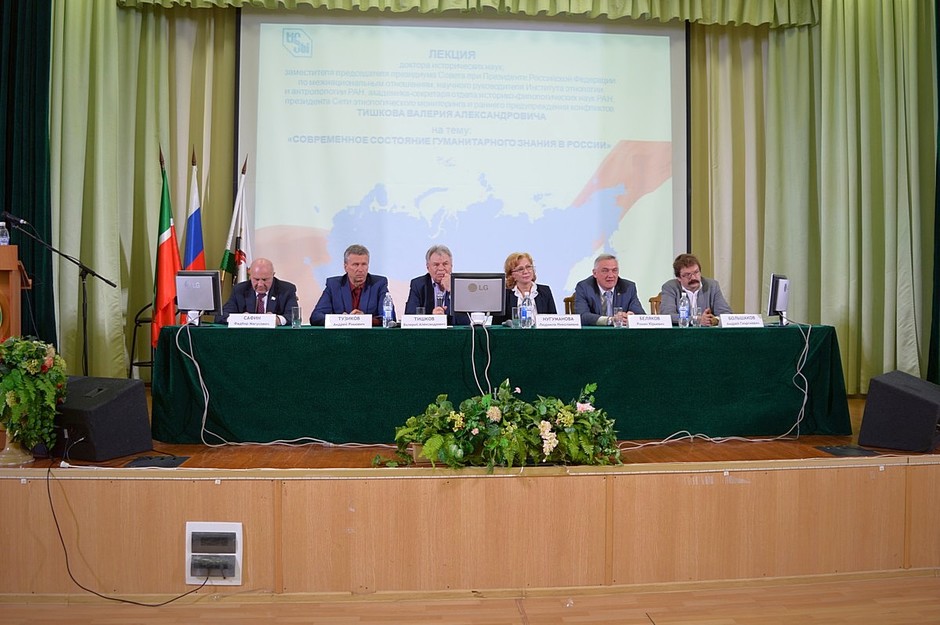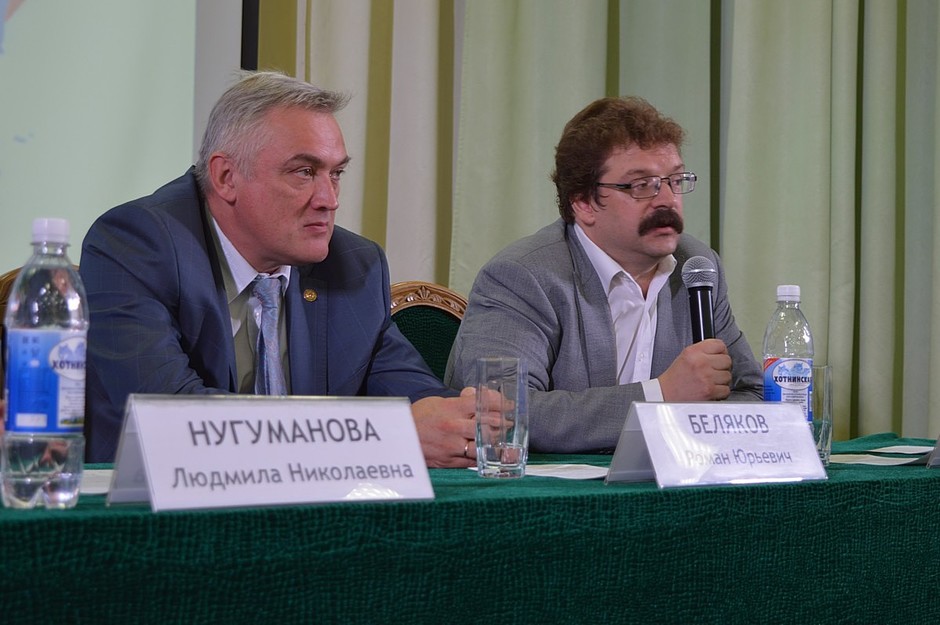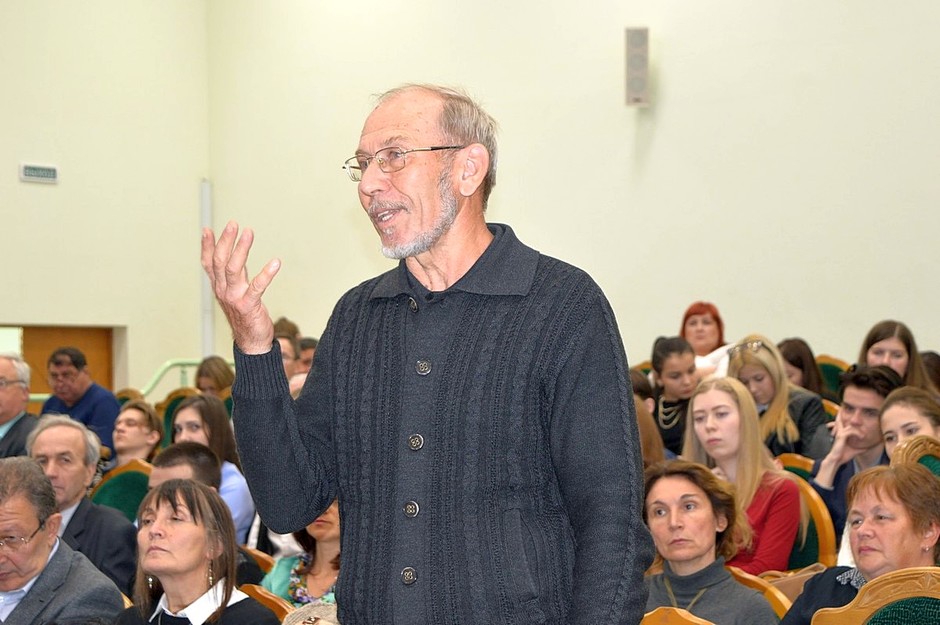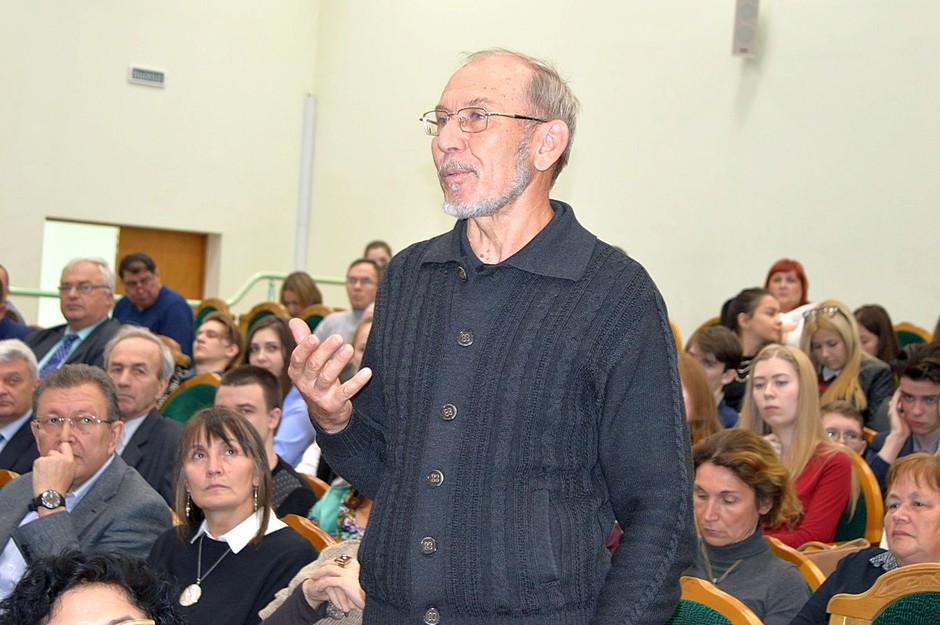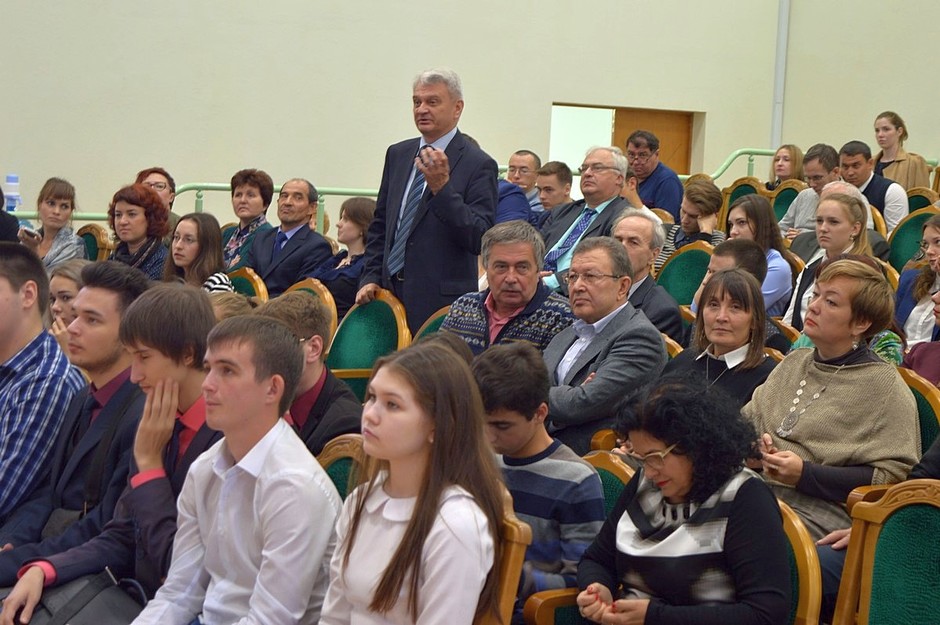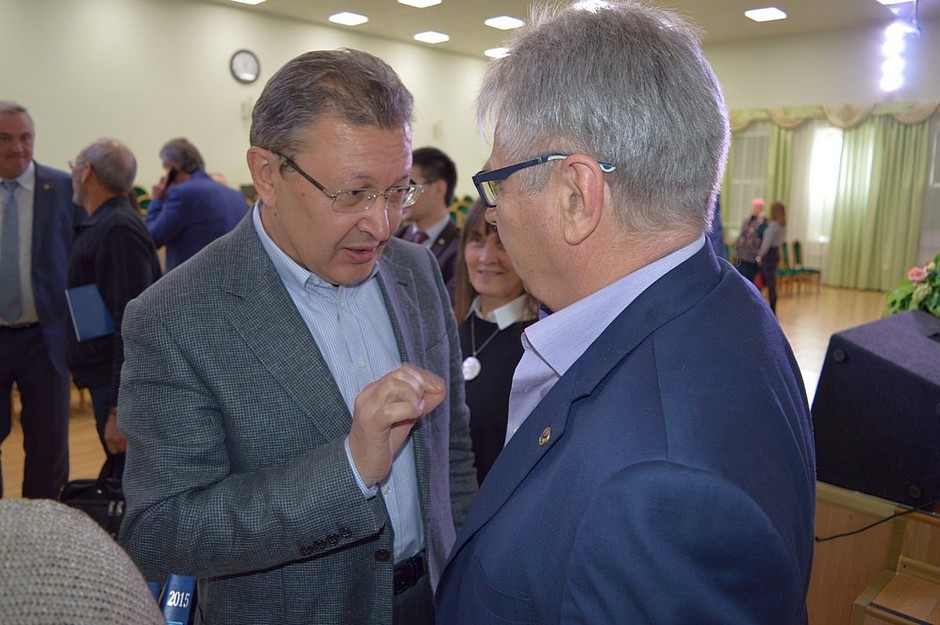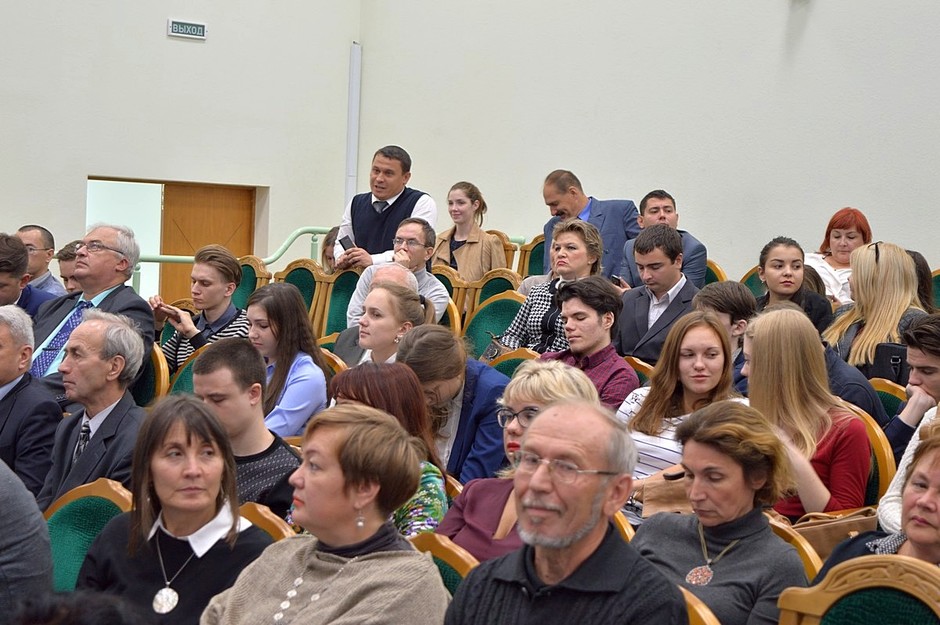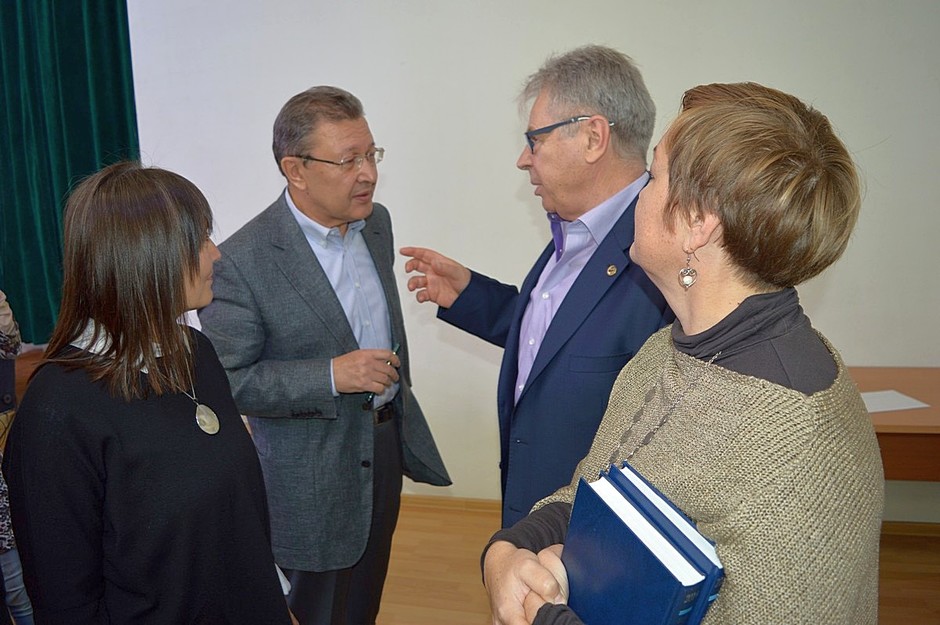Valery Tishkov: ‘There is a question: how to motivate the Russians to learn the Tatar language?’
A famous ethno-sociologist speaks about inter-ethnic relations, construction of the nation, the Russians in Tatarstan, bilingualism in the republics and the Kryashens
A famous scientist and specialist in ethno-politology, history and social anthropology Valery Tishkov arrived in Kazan on 14 September. During his visit to the capital of Tatarstan at TISBI University of Management, he gave a lecture called Modern State of Humanity in Russia for professors and students of Kazan universities. He answered different questions asked by the Kazan mass media, including Realnoe Vremya.
'During the election campaign, there is a temptation to use an ethnic card in the political fight'
Could you tell what is done in the country from the inter-ethnic perspective?
The situation in this sphere has shown a positive dynamics in the last 3 years. There is less xenophobia, radical nationalism – from both the majority and other ethnicities. First of all, it is a result of big events in our life: the Olympics in Sochi, annexation of Crimea, events in the east of Ukraine (Donbass), sanctions that cause solidarity and all-Russian patriotism. And, undoubtedly, the state took certain measures to regulate these things, took law enforcement actions towards radical extremist elements in this sphere. It all gave a positive result. Despite not the best economic dynamics, in general, we consider the inter-ethnic relations as favourable. Although our country is big, there is no guarantee that we won't have problems.
I will note another moment that I wrote about before the previous election. During the election campaign, there is a temptation to use an ethnic card in the political fight. But little time left, and there has not been any frank manipulation from an ethnicity or against an ethnicity by now. There were blunt statements on migration, it is a global problem. From the perspective of our situation, in my opinion, everything is fine except some not very correct statements about our federalism. I don't support these statements, but some politicians have made them.
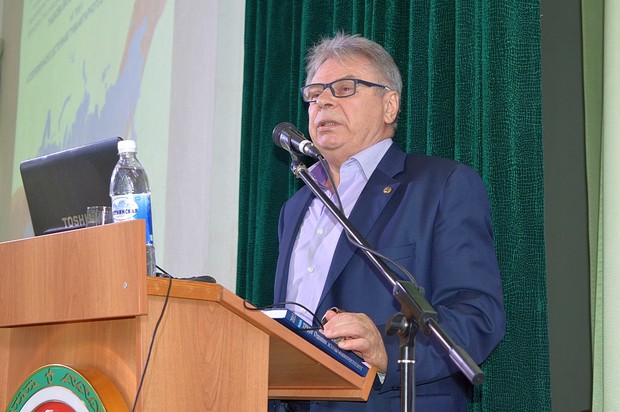
Despite not the best economic dynamics, in general, we consider the inter-ethnic relations as favourable. Although our country is big, there is no guarantee that we won't have problems.
Politicians have used such words as 'multinational country', 'Russian people' in recent time. In your opinion, won't it result in unification?
The strategy in the state national policy, which was adopted in December 2012, is still in use. It is clearly written that it is an absolutely interrelated single goal: all-Russian civil identity, self-consciousness, strengthening the unity of the Russian people (civil nation) and ethnic and cultural development of the ethnicities of Russia. In other words, it is an internal self-identification as both autonomous regions that we have (22 republics, okrugs and oblasts) and national and cultural autonomous regions. No one questions these things at the level of our government and our common policy. The Ethnic and Cultural Development of Peoples of Russia and Identification of Russian Identity is working, though it doesn't have much money. But always there is a desire to claim that, first of all, we must speak about the Russian nation. Other people say the Russian nation presupposes a cancellation of other nations. An explanation is needed among the scientific community too, though scientists have been still arguing. And the mass media is to perform this function. If we have been talking that former union republics are national states, and the Soviet Union is a multinational people and nothing else, just friendship of peoples for many decades, not everybody and not always manages to think we are one people even there are difficulties, many ethnicities, religious, regional and historical specifics. But we should do it. It won't bring us to unification. Earlier there were not any ministries of national policy, but peoples existed, exist and will exist.
The Russians' problems in republics
[Question asked by Realnoe Vremya] From your point of view, is it difficult to be Russian in Tatarstan?
I have never lived here. But I have visited Tatarstan about ten times. I think the problem is not the same that it used to be at the beginning of the 90s when I came here in 1992 as a minister. I remember I met with Morozov. At that moment he was in the local politics. There were a movement and organisations among the Russian population of Tatarstan. It was likely to be an answer to a fever pitch in the Tatar national or nationalistic movement, first of all, the Tatar Community Centre. So this situation left in the past. To start with, we should look at the representation of the Russians in power, business, education, mass media and ask the very Russians. This issue is very important. A region is to be analysed. We have republics with disproportions concerning the representation in power. There were made some amendments. But I don't think not all mistakes have been corrected. For example, your neighbours – Bashkortostan or Adygea where the titular minority of the population occupied the majority of posts in the government. It is not very good.
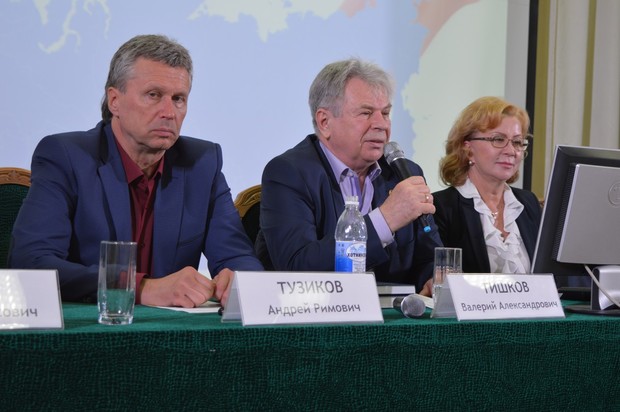
If we have been talking that former union republics are national states, and the Soviet Union is a multinational people and nothing else, just friendship of peoples for many decades, not everybody and not always manages to think we are one people even there are difficulties, many ethnicities, religious, regional and historical specifics. But we should do it.
What is the message of the lecture Modern State of Humanity in Russia?
As I head the Humanities in the Russian Academy of Sciences as an academic and secretary of the Department Historical and Philological Sciences, I would like to tell about the current situation from the perspective of its content: what huge progress and achievements we have achieved in Humanities, not Social Sciences, because I'm not jurist, economist or political expert. I would also like to speak about the institutional situation of the institute, academy, new ministries. Thirdly, working conditions, what a humanitarian's scientific labour is like today, and why we need Humanities.
Why do we need Humanities?
To understand who we are.
'How to motivate the Russians to learn the Tatar language?'
The State Duma created a concept of development of the Russian language and literature where there is no room for teaching national languages. What do you think about it?
I don't know such a concept. We have a law on the state language, the Russian language… I have no idea about this concept of the State Duma, who and when adopted it. Probably it is not a law, is it? Why does the State Duma need to create a concept? It may be either a bill or law. But the Duma doesn't deal with concepts. For example, the academy is responsible for it.
From your point of view, are national languages taught as they should be?
I think we lost some positions, compared with what we had in the old Soviet school in 1991. At the same time the interest in non-Russian languages, languages of other nationalities has grown in the last 20 years, of course. Positions of big non-Russian peoples, especially those peoples who have their own republics – from Tatarstan and Chechnya to republics where these languages are in a good state – are especially strong. I can't say these languages are on the verge of extinction. But there is a tendency, and old life line of our country where there is an assimilation in favour of the Russian language. The Russian language recruits those people whose mother tongue is not Russian because it is the dominating and state language of the majority of the population. This assimilation is voluntary. As a rule, parents understand and know a child who fluently speaks the Russian language can go to any university and succeed. But in this case, non-Russian languages turn out in an unpleasant situation. In my opinion, both things should be done.
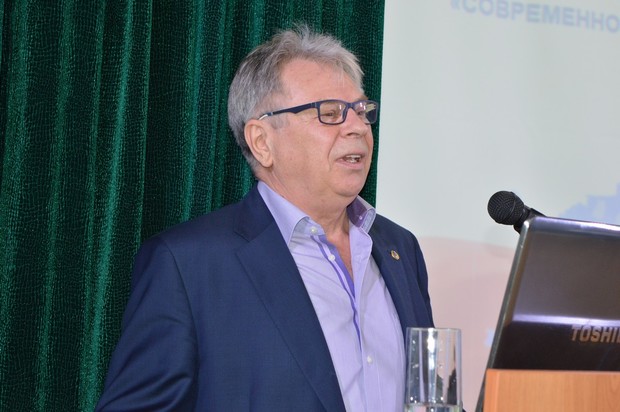
I think we lost some positions, compared with what we had in the old Soviet school in 1991. At the same time the interest in non-Russian languages, languages of other nationalities has grown in the last 20 years, of course.
The modern-day world is that bilingualism or multilingualism is likely to be a norm, not anomaly. Today the rural population in the country accounts for less than 30%. And the rural population has all possibilities to get information in their mother tongue. This is why bilingualism, especially in such regions as Tatarstan, must be a norm and have the following function: some spheres prefer the Russian language, some of them like Tatar. There is a question: how to motivate the Russians to learn the Tatar language? This problem exists. It is the problem of the Russians who live in a republic where children sometimes prefer to learn English, not Bashkir, Tatar, Chuvash. But the experience of some countries demonstrate that if certain efforts are put, there is an additional financing and incentive of bilingualism of representatives of the dominating ethnicity, in this case, they are Russians, they can and are ready to learn the second language – the language of the people among which they live. For instance, all English-speaking Canadians who live in Quebec have learnt the French language in recent 30 years and became bilingual. Canada spent on it several billions of dollars.
We are not Tatars, the Tatars are not us
[Question asked by Realnoe Vremya] there was a division in the Tatars, Mishars, Kryashens. Teptyars, Siberian and Astrakhan Tatars and so one from the 1990s and the beginning of the 2000s. Is this division right? Should they be considered as separate ethnicities in the census?
Sure, almost all these groups were in the census in 1926. Look at these censuses and the censuses in 1897 – the last tsar census and the first nationwide census in the Russian Empire – they were present there. The thing is that in the Soviet census in 1937, 1939, 1959, all Kryashens were rewritten as Tatars.
Now, according to the Constitution, there is the right to self-identification. If he is Kryashen, no one has the right to rewrite him as Tatar. And the Mishars, Teptyars are not a separate group, they are a subgroup of the Tatars. If you have seen the list in the materials of a census, there are Tatars, and others follow them then as well as there are Pomors and Kazaks among Russians. No one separated them from the Tatars. The Tatars have a group that consider itself as Krayashens. Crimean Tatars is another group that has its own language. And Siberian Tatars is a group among the Tatars.
